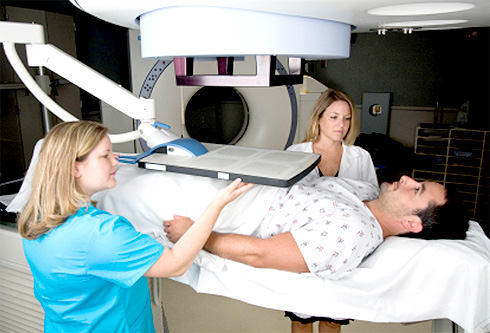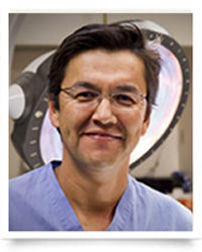Ask the Expert: The Impact of Cancer & Radiation Therapy on Heart Valve Function with Dr. Luis Castro
Written By: Adam Pick, Patient Advocate, Author & Website Founder
Page Last Updated: February 28, 2025
Since launching this website, I have met many patients who experience valvular disorders after radiation therapy for cancer. I was curious to learn more about the connection between cancer, radiation treatment and heart valve disease, so I contacted Dr. Luis Castro, a leading heart valve surgeon at MarinHealth Heart and Vascular Institute.

Here are the highlights from our exchange:
Adam: Thanks so much for taking the time to chat with me today about heart valve disease related to cancer treatment – specifically radiation therapy. Do you see many patients with this issue?
Dr. Luis Castro: Thank you Adam for educating the patients at your website about this very important topic. To start this conversation, I have to say that we are so fortunate to be living in this time of modern medicine in which once incurable cancers and malignancies, that took the lives of so many young people, can now be cured. In particular, radiation therapy, aimed directly in high doses at the specific tumor, has become a lifesaver in treating and curing many types of cancers and lymphomas.
In the setting of radiation therapy, this miraculous heart of ours may be prone to injury. It is recognized that radiation therapy directly to the chest may, while life-saving, cause injuries to the heart that can show up many years following treatment. The high doses of radiation required to wipe out those cancer cells (responsible for future spread), may also injure the lining of the heart sac (or pericardium), the heart muscle itself, the aortic and mitral valves, coronary arteries and the electrical conduction system of the heart.
Adam: Are there any statistics about the incidence of cardiac issues resulting from radiation therapy for cancer?
Dr. Luis Castro: It is estimated to occur in at least 10% of those patients treated with radiation therapy to the chest. Typically, it begins to present itself from five years to several decades following treatment. Cancer specialists are working on modifying necessary radiation protocols to lessen heart injury without sacrificing success against cancer growth.
Adam: Ten percent seems pretty significant. Is this radiation side effect well understood by the medical community?
Dr. Luis Castro: Surprisingly, even amongst our cardiologists, this direct link of radiation therapy to heart disease is not well understood. For many patients, this can lead to misdiagnosis and under treatment. Awareness and knowledge that radiation treatment may create long term problems is the key to early diagnosis and successful treatment.
Adam: How can this situation impact your role as a surgeon?
Dr. Luis Castro: Depending on the heart structures affected by radiation, surgical procedures can be quite complex and, at times, riskier than a typical heart operation. If necessary, surgical procedures may include radical removal of the heart sac that may thicken and constrict the ability of the heart to fill and squeeze normally, complex valve replacement of the aortic and/or mitral valves that can densely calcify and stiffen, bypass procedures of the coronary arteries, and pacemaker implantation. These surgical procedures should be performed by surgeons experienced with radiation complications, as the extent of heart disease prior to operation is typically underestimated, and at the time of operation can be extremely complex and difficult to manage, even in the best of hands.
Adam: Do you have any advice for patients who have had radiation therapy and are now experiencing valve disorders — like stenosis?
Dr. Luis Castro: If you, or a loved one, has received radiation therapy to the chest for cancer treatment, I recommend echocardiographic evaluation of the heart five years after therapy. And then, life-time serial echocardiographic studies, as necessary, to follow any potential problems that may appear decades after receiving radiation.
Adam: Thanks so much for taking the time to help all of us learn more about the connection between cancer, radiation therapy and heart valve disease.
Dr. Luis Castro: Thank you!
Keep on tickin!
Adam
|
Joanne says on December 23rd, 2013 at 12:46 pm |
|
I received cobalt radiation for Hodgkins Disease 40 years ago. I now have both aortic and mitral valve disease. I need surgery for the repair of mitral and replacement aortic. I have had 2 consultations both with different recommendations. One doctor’s expertise is in minimally invasive surgery here in South Florida. The other doctor prefers the conventional sternotomy. In your opinion having had radiation to the chest wall, is a minimally invasive approach laterally a safer method vs. a sternotomy. due to bone healing following a open sternotomy. |
 |
|
Jim Derr says on January 1st, 2014 at 5:43 pm |
|
Adam, My name is Jim Derr and I am scheduled for aortic valve replacement surgery on 1/13/14 at the VA hospital in Madison Wi. My surgeon is with the UW Madison hospital. I think your book is a great help for me. I appreciate the detail you went into throughout the book. My question is that I had the right lower lobe of my lung removed last July.(Agent Orange). I have had numerous (every 3 mo’s) ct scans and x-rays since around the middle of 2012. They are continuing to do so because of a minute speck on my left lung. Could that contribute to my valve problem ? I’d really like to know. Thanks in advance, Jim |
 |
|
Lois says on January 11th, 2014 at 11:04 pm |
|
Adam, In 1998 I had a lumpectomy, also had 33 radiation treatments, no chemo., thank goodness, in 2010 I had to I had to have aortic valve replaced, I was told for years I had a heart murmur, but never did have any problems, I went to the dr. for an ache in my arm & she said it was bursitis, but when she listened to my heart she said I don’t like what I hear so she sent me to a cardiologist, I was told I had aortic stenosis, so in 3 weeks I was scheduled for surgery, I have done fine since then but since just reading this article I wonder if this could have caused my problem, I read your book & it was a big help. |
 |
|
Lois says on January 15th, 2014 at 8:44 pm |
|
Really enjoy all the updates! |
 |
|
Joanne says on January 17th, 2014 at 4:47 pm |
|
Wanted to take this opportunity to thank Dr. Luis Castro for taking the time to contact me and discuss my case, review my records and help to ease my anxieties as I prepare to undergo aortic valve replacement and mitral repair on 2/25/14. With me residing in South Florida and Dr. Castro in Northern California, I most certainly think he went above and beyond. How truly wonderful!!!! |
 |












